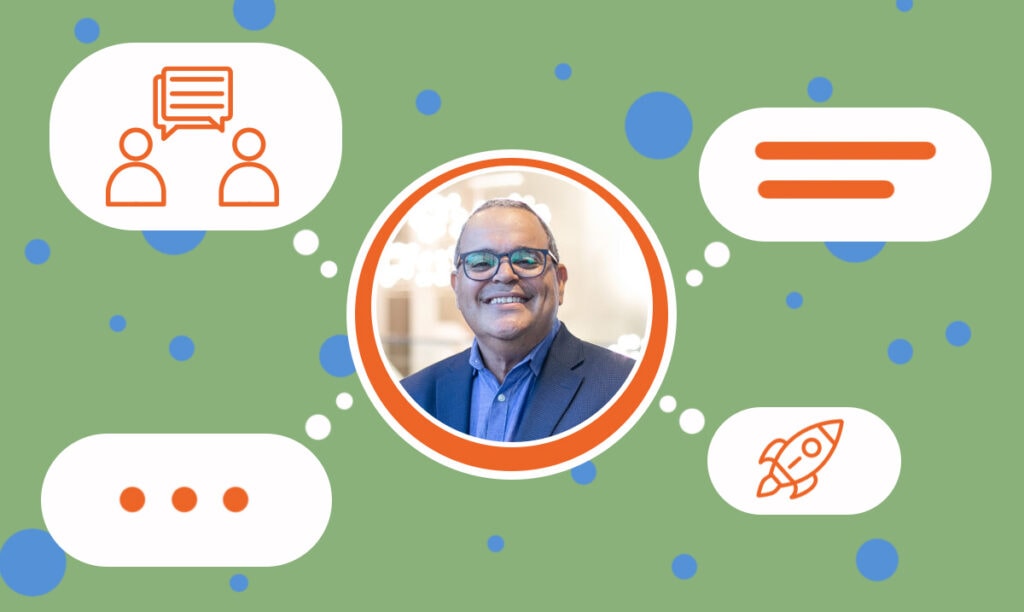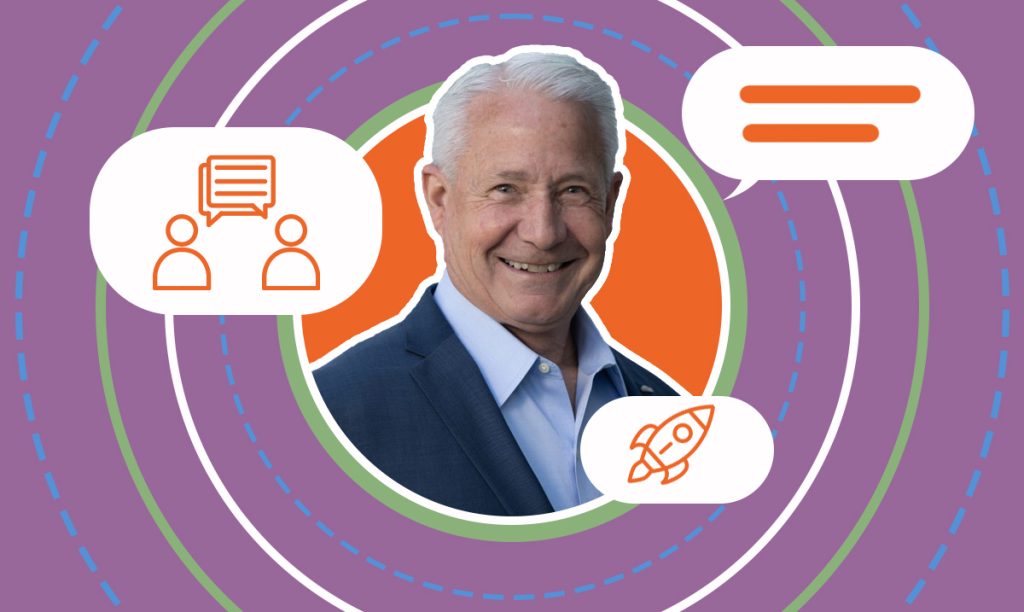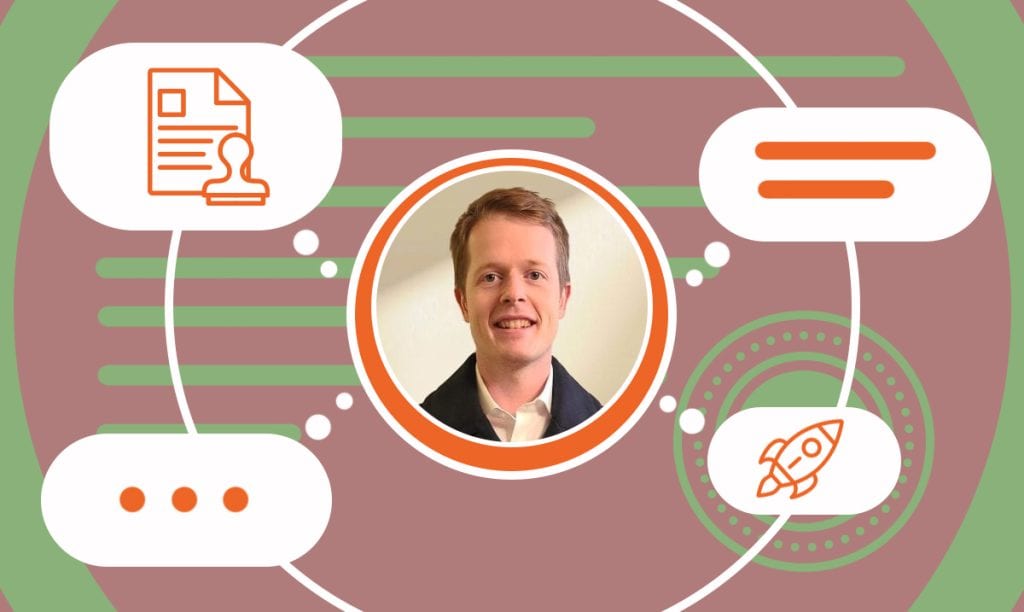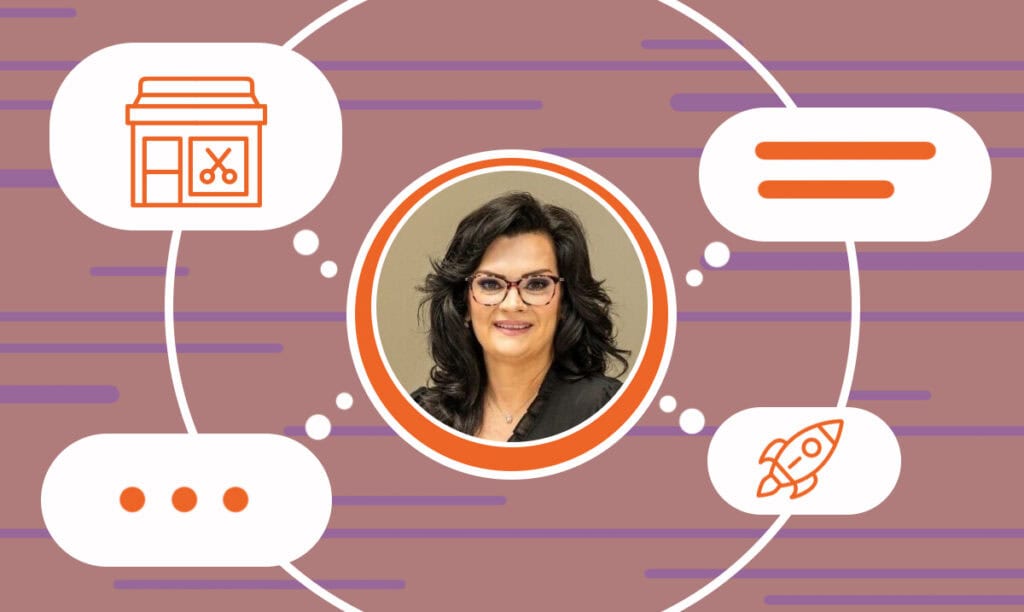When it comes to business banking, a one-size-fits-all approach doesn’t cut it — just ask Endeavor Bank. Since its founding in 2017, EndeavorBan ...
David Chaumette’s Journey to Redefining Business Consulting
Written by: Carolyn Young
Carolyn Young is a business writer who focuses on entrepreneurial concepts and the business formation. She has over 25 years of experience in business roles, and has authored several entrepreneurship textbooks.
Published on January 4, 2024

David Chaumette, the principal of Chaumette Solutions, is a seasoned professional in the field of strategic business consulting. With a diverse background that includes overcoming personal and professional setbacks, Chaumette has redefined his career path to focus on providing impactful strategic guidance, particularly to small businesses. In this exclusive interview, he shares his journey from practicing law to establishing a consulting firm that emphasizes affordability and practical solutions. He discusses the challenges and triumphs of his business, insights into the consulting industry, and his unique approach to client relationships and business strategy.
Inspiration Behind Starting a Consulting Firm
SBS – What inspired you to start a strategic business consulting firm?
David – In the mid-2010s, I had a number of setbacks, personal and professional. Together, they led to an almost complete collapse of my health. I had to change directions, so I left the practice of law and started working with some of the same clients — mostly small businesses — on broader issues than their legal challenges. When you are a company’s lawyer, you spend a lot of time digging the cart out of the ditch. As a consultant for the same companies, I sought to help those companies avoid the ditch altogether. Too often, I saw small businesses struggling with strategy and operations, but unable to afford big firm fees. I wanted to provide the strategic guidance they needed in a more affordable, fractional model.
Initial Funding and Business Setup
SBS – How did you initially fund and set up your business?
David – Funding a business has its own challenges and was very difficult because I did not start off in the best way. I worked to keep costs low by working virtually instead of leasing office space. I refined service offerings based on client demand instead of extensive market research. And I learned to say “no.” Some clients are good people with real problems, but they may never be able to pay you. Those causes, no matter how noble, can sink you if you don’t continually pay attention to your bottom line.
First-Year Challenges
SBS – What were the biggest challenges you faced in the first year?
David – There were several early challenges. My health was very poor, so I could not work much, and I had some initial clients who were very understanding. I also had to work to develop my value proposition. As the answer to this question, “What sort of things do you do?” you can’t say everything because that means nothing. But having a meaningful, impactful answer to that question took a lot of time to refine. On some level, I am still working on it.
Differentiating the Consulting Firm
SBS – How do you differentiate your consulting firm from competitors?
David – More than most others, I am personally invested in my clients. I do not take on many engagements, and generally, they are for longer periods of time. Too often, small business owners do not have peers with whom they can discuss the business’s challenges. As someone who has owned several small businesses and helped many others grow, I provide a unique, confidential place to work out their business issues.
Essential Skills in Strategic Business Consulting
SBS – What qualifications or skills are essential for someone in strategic business consulting?
David – A good consultant listens, asks leading questions, and provides actionable advice. I have a client now who has a manager in their office who always discusses things at the 30,000-foot level. That kind of approach is ultimately not helpful. The question to ask (and ask often) is, “What is the very next thing that needs to be done?” Not dealing with that level of detail often prevents any success, which can be frustrating (to say the least). The best consultants come in with a general idea of what needs to be done but no firm position on the best way possible. The focus needs to be on practical solutions, not abstract strategy.
Client Acquisition and Retention Strategies
SBS – How do you find and retain your clients?
David – Finally, the real question. The answer is slowly and deliberately. As Bob Burg says, people buy from people they “like, know, and trust.” The owner of my biggest current engagement met me six years before hiring me. My biggest engagement from last year was with someone I had known for seven years before they hired me. Before getting hired, you need to give people value freely and without expecting anything in return. Use that time to learn as much as you can, and then when the time is right, the new clients will line up, asking you to hire them. After being retained, the key is to continue to provide that same level of value.
Trends in the Consulting Industry
SBS – What are the key trends or changes you’ve observed in the consulting industry over the past few years?
David – More recently, I have seen consultants work more virtually. This is both positive and negative. Virtual work allows you to interact with people from all over the globe, and technology helps with faster turnarounds. This is to say nothing about the potential impact of AI on business and consulting. Yet, I still find a great deal of benefit from walking into a client’s office and speaking with everyone. Many consultants concentrate on selling courses — a “one to many” approach — but I am not convinced that that approach works without a significant accountability aspect.
Impactful Client Projects
SBS – Can you describe a project or client scenario where your consulting made a significant impact?
David – In the end, most businesses are just people, a product, and processes. If one of those is not working right, then there will be problems. Over the last few years, I have spent a lot of time working with small business owners making sure that they have the right people in the right jobs. It sounds like a simple thing to do, but it is not. In one specific case, there was a wonderful employee who just did not have the right training to meet the job’s expectations. I worked closely with that employee for several months, and now that person is one of the best employees at that company.
Keeping Up with Business Strategies and Trends
SBS – How do you stay updated with the latest business strategies and trends?
David – The answer is simple: Be curious. I am a voracious reader and consumer of information. I also always seek to see the connections between different situations and different companies. The products and people may change as you go between companies, but there will always be similarities. A good consultant always looks for those connections and is always learning.
Role of Technology in Business Operations
SBS – How have technology and digital tools transformed the way you operate your business?
David – The advances in technology have been game-changing — allowing me to work with clients all over without geographic barriers, using video conferencing for virtual meetings, leveraging analytics and AI tools to understand data, providing secure portals for sharing files, and more. It has also meant that I can do more with less and finish assignments faster. That said, there is no substitute for real experience and attention to detail. Technology is not the ultimate panacea. It is just another tool.
Valuable Advice for Running a Consulting Business
SBS – What’s the best piece of advice you ever received about running a consulting business?
David – Someone once told me to remember that other people’s objectives are never the same as yours. Others are not necessarily ill-intentioned, just focused differently. As such, it is important to look for those goals and understand how to motivate others accordingly. The best part of any business can be its employees. They can also be the worst part of any business if the owner does not run their business in an appropriate way.
Handling Difficult Clients and Projects
SBS – How do you handle difficult clients or projects that don’t go as planned?
David – Difficult clients are usually not worth it. The question to ask is whether it is the client or the situation that is the problem. It is always important to manage expectations and understand the capabilities of the different people and tools at your disposal. Clear communication is also key, but it’s not possible with everyone. In the end, if the client remains different, it is best to sever ties without leaving anyone “in the lurch.” Some things cannot be fixed.
Starting Your Own Consulting Firm
SBS – What advice would you give to someone looking to start their own consulting firm?
David – There is no perfect time to start, so just take the leap. If you have a stable 9–5 job, you might consider getting a line of credit or something similar to make sure you can survive the ups and down of consulting life — until your consulting fees take off. In general, it is better to say “no” more than “yes.” Let excellence of results be your best marketing, and do not hesitate to ask for referrals.
Managing Work-Life Balance
SBS – How do you manage work-life balance in such a demanding profession?
David – Balance comes from discipline and boundaries. I have a disciplined work schedule, so I am fully present with family, hobbies, and self-care. I also hire for any tasks outside my core competencies. The flexibility of consulting helps, as my firm runs smoothly in my periodic absences. Still, true balance remains a challenge with the level of demand.
Future Vision for the Business
SBS – Looking to the future, where do you see your business in the next five years?
David – In the coming few years, I will continue growing, expanding my team, and nurturing a thriving company culture focused on mentorship and excellence. I hope to work with clients with the same foci. While I plan to continue working closely with a handful of clients, I hope to scale our broader impact. I want my firm to become the go-to choice for fractional strategic guidance for solo entrepreneurs to mid-sized companies.
Subscribe to Our Newsletter
and gain insider access to cutting-edge business insights and trends.
Featured Resources

Empowering Entrepreneurs with a Consultative Banking Model
Published on January 23, 2025
Read Now

How Painless Notary Simplifies the Process with Mobile Services
Published on August 26, 2024
In an industry traditionally rooted in face-to-face interactions, Kyle Beam is challenging the status quo with Painless Notary, a company dedicatedt ...
Read Now

How to Succeed in the Salon Suite Business
Published on July 22, 2024
In this interview, we sit down with Karen Kaminski, the owner of Allure Salon Suite Consulting. Karen shares her journey from owning a nail salon to ...
Read Now
Comments